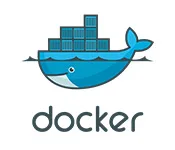I’m having some issues deploying a selenium scraping script in render. Locally the script runs fine, when I deploy it on render and I try to access the endpoint to trigger the script this is the problem it shows:
WebDriverException
selenium.common.exceptions.WebDriverException: Message: Service /root/.cache/selenium/chromedriver/linux64/125.0.6422.60/chromedriver unexpectedly exited. Status code was: 127
The script structure is the following:
I’m going ahead and making a copy of the script, if something is unclear please let me know:
wiki_script.py :
# BeautifulSoup imports
from bs4 import BeautifulSoup
# Selenium imports
from selenium import webdriver
from selenium.webdriver.chrome.options import Options
from selenium.webdriver.common.by import By
from selenium.webdriver.chrome.service import Service
# Flask imports
from flask import Flask, request
'''0. We create the flask app'''
app = Flask(__name__)
'''1. Main function'''
def main_script():
# Url to scrape
url = 'https://www.wikipedia.org/'
# Selenium parameters, headless for deploy
chrome_options = Options()
chrome_options.add_argument("--headless")
chrome_options.add_argument("user-agent=Mozilla/5.0 (Macintosh; Intel Mac OS X 10_15_7) AppleWebKit/537.36 (KHTML, like Gecko) Chrome/119.0.6045.160 Safari/537.36")
chrome_options.add_argument("--no-sandbox")
chrome_options.add_argument("--disable-dev-shm-usage")
chrome_options.add_argument("--disable-gpu")
chrome_options.add_argument("--window-size=1920,1080")
driver = webdriver.Chrome(options=chrome_options)
# Opens the url
driver.get(url)
# Parse the url with beautifulsoup
soup = BeautifulSoup(driver.page_source, features="html.parser")
# Find the class that has the english text
lang_elements = soup.find_all(class_='central-featured-lang lang2')
# Get the 'English' text and print it from inside 'strong' attribute
strong_texts = []
for element in lang_elements:
strong_tag = element.find('strong')
if strong_tag:
strong_texts.append(strong_tag.get_text())
print(strong_texts)
return strong_texts
'''2. Configs for the API and Flask'''
@app.route('/', methods = ['GET'])
def home():
if (request.method == 'GET'):
return main_script()
if __name__=='__main__':
app.run(debug=True, host='0.0.0.0')
requirements.txt :
beautifulsoup4
selenium
Flask
webdriver-manager
packaging
gunicorn
Dockerfile:
FROM python:3.9-slim
WORKDIR /
COPY requirements.txt requirements.txt
RUN pip install --no-cache-dir -r requirements.txt
COPY . .
ENV PORT=5000
EXPOSE $PORT
CMD ["python", "wiki_script.py"]
I’ve tried a couple of changes in how I set up the Chrome options, but nothing seems to work really fine and I’m a little lost, any help would be appreciated.

 Question posted in
Question posted in 


2
Answers
After reviewing some documentation and trying a couple of fixes i've finally made it work, going to leave the final code that i was able to deploy on render without any problems.
wiki_script.py :
requirements.txt :
Dockerfile:
The main changes were made in the Dockerfile to be able to install chrome successfully and i forced the version for some libraries as seen in requirements.txt
As a driver is not installed on your docker container maybe causing the issue, Here’s a solution that downloads the compatible ChromeDriver and runs it within your Render environment using
webdriver-manager:requirements.txt:wiki_script.py:Explanation:
webdriver-manageris used to automatically download the compatible ChromeDriver version based on your Chrome version in the Doker.ChromeDriverManager().install()retrieves the appropriate chromedriver path.Service(ChromeDriverManager().install())configures the WebDriver to use the downloaded chromedriver.